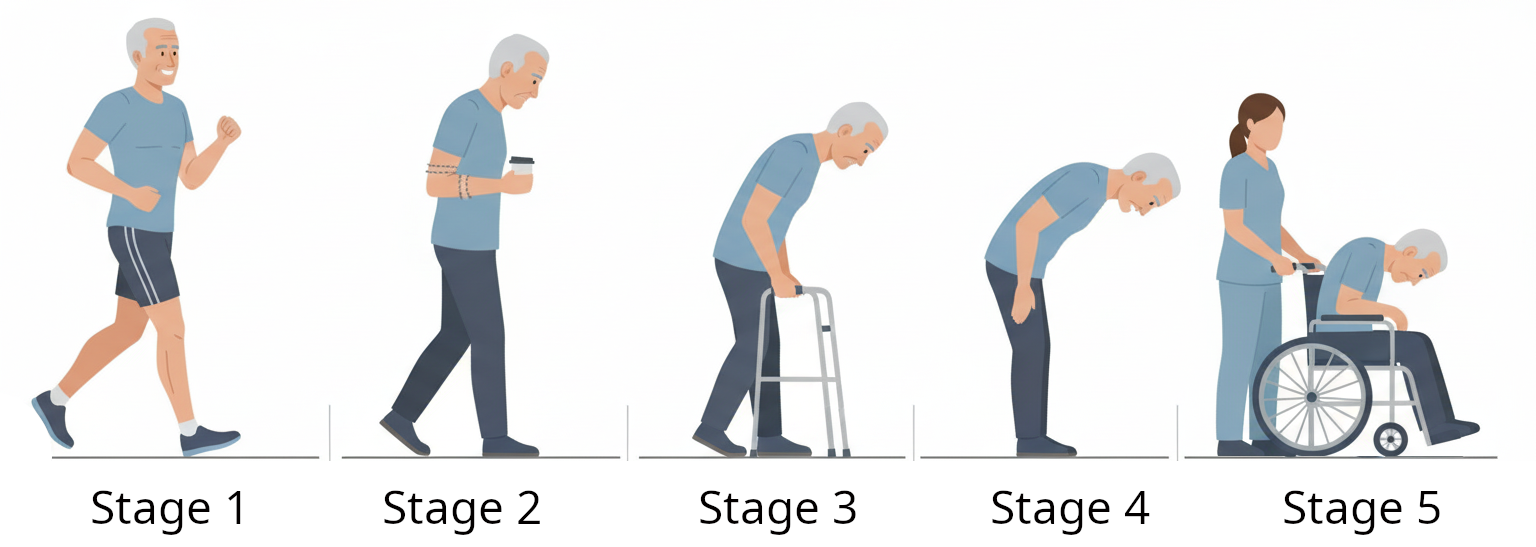
Parkinson's disease is a neurodegenerative disorder that primarily affects movement. While there is no definitive cure for Parkinson's disease, a variety of treatments are available that can help manage symptoms and improve quality of life. The therapeutic strategy is typically determined by the severity of the symptoms and the stage of the disease.
The treatment approach for Parkinson's disease is often adjusted based on the progression of the disorder. The general principle is to start with low doses of medication, and then potentially increase the dosage, replace them, or combine them with other drugs if the desired effect is not achieved.
In the initial stages of the disease, symptoms are usually mild and may not require any type of medication. However, it's essential to monitor the progression of the disease with regular check-ups.

Treatments for Parkinson's disease can be broadly categorized into supportive therapies (such as physiotherapy and occupational therapy), pharmacological therapy, and in certain cases, surgery.
It's crucial to remember that Parkinson's disease varies significantly from person to person, both in terms of the number and intensity of symptoms. Therefore, the treatment strategy must be personalized based on the individual's unique disease characteristics.
The primary goal of pharmacological therapy for Parkinson's disease is to compensate for the dopamine deficit in the brain, as dopamine is essential for controlling and coordinating body movements.
Levodopa, also known as L-Dopa, is the main treatment for Parkinson's disease. This drug increases the concentration of dopamine in the brain, thereby improving symptoms. However, over time, the effectiveness of Levodopa may decrease, leading to an exacerbation of symptoms. Despite this, Levodopa is still associated with a significant improvement in motor function and a slower progression of disability.
While Levodopa's therapeutic benefits are undisputed, it can cause side effects such as restlessness, disordered and uncontrollable movements, nausea, vomiting, and drops in blood pressure. To mitigate these effects, the drug is often administered in combination with other medications.
Dopamine agonists are drugs that mimic the action of dopamine in the body. These drugs are typically prescribed for patients with early-stage Parkinson's disease whose motor symptoms do not significantly impact their quality of life.
Monoamine oxidase type B inhibitors (MAO-B) inhibit the enzymes that degrade dopamine, thereby increasing the levels of dopamine in the brain.
Catechol-O-methyl transferase (COMT) inhibitors increase the persistence of Levodopa in the blood and the brain, thereby enhancing its effectiveness.
If drug therapy does not produce beneficial effects, deep brain stimulation surgery may be considered. This procedure involves the implantation of a pacemaker in a specific area of the brain to stimulate the damaged brain area.
Supportive therapies, such as physiotherapy and occupational therapy, can significantly improve a patient's daily life, especially in the initial and intermediate stages of the disease. Speech therapy can also be beneficial for alleviating dysphagia and rehabilitating the voice.
In conclusion, while Parkinson's disease is a chronic and progressive disorder, a range of treatment options are available that can help manage symptoms and improve quality of life. It's essential for patients and healthcare providers to work together to develop a personalized treatment plan that best meets the patient's needs.